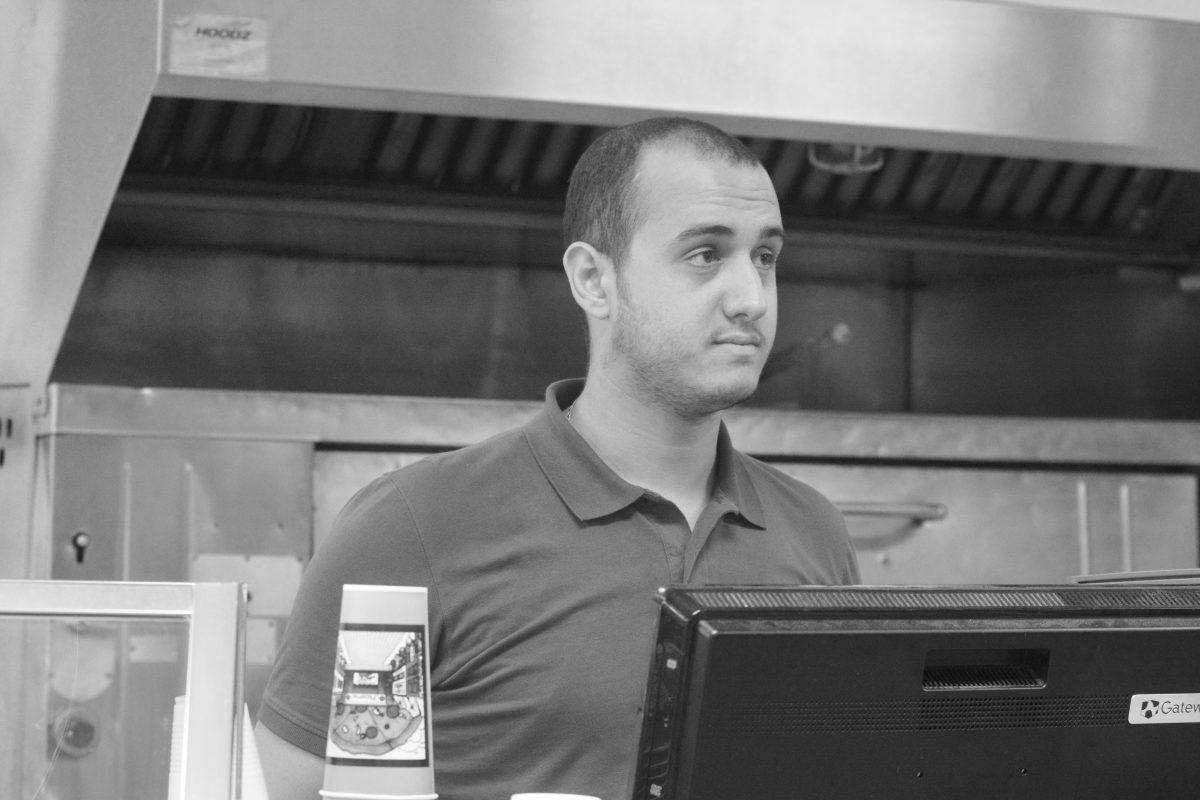In Global Village Coffee Shop, Ahmed Alhoory, a civil engineer raised in Iraq, spotted a backgammon board game on the wall, a traditional Mesopotamian game still played around the world. Immediately he wanted to play, remembering when he and his friends used to play it as children. Alhoory works at I Love NY Pizza on Hillsborough Street, and is planning to get his master’s degree from the school directly across from his workplace: NC State.
His proficiency in the game is impressive. Each strategy comes to him in seconds, as if he has memorized every move possible. His knowledge of math and engineering cannot be ignored when challenging him to a game.
Al-hoory lived in Iraq until he was almost 17. From there, he moved back and forth between Jordan and Iraq for educational purposes but in 2006 to 2014 he lived in Jordan.
According to Al-hoory, despite the many political changes in Iraq that took place during his childhood, he had a relatively normal upbringing. Like any child, he often played outside and even severely injured himself, marked by a large scar on his arm.
“It was a good childhood,” Al-hoory said. “But it was a bit hard because of the situation in our country since 1990, but it was good.”
His father lived and studied in the United States from 1963 to 1976. He moved back to Iraq in 1976 and soon became a professor at a university in Amman, Jordan. Because he had lived in the U.S. for so long, he told his son about American culture and his life here.
“The culture shock that some people experience, I didn’t see it as much,” Al-hoory said, “The culture shock mainly happens when you don’t know how to communicate with other people. I didn’t get that because my English is good and will hopefully get better. And my father used to talk a lot about America, about the friendships, about a lot of things he did here.”
Al-hoory is fond of American culture. He has noticed one of the biggest differences between the culture of the U.S. and the Middle East is that people are more open and forward here than they are in Iraq and Jordan.
“People here are friendlier,” Al-hoory said. “There was one time I didn’t have my phone or GPS here, and I was looking around trying to find out where I’m going. People were nice. They came to me and said, ‘You look lost. Do you need help?’ You don’t find that in Iraq.”
Al-hoory received his bachelor’s degree in civil engineering, and hopes to become a structural engineer. However, that was not always his plan. He began his higher education studying computer science, a field his father suggested.
Al-hoory was unsure of what he wanted to do when he started university. His first year in computer science gave him the opportunity to look at what the school had to offer and explore a variety of disciplines.
Eventually he chose civil engineering instead of computer science. His affinity for engineering came from his mother, who is a structural engineer. He always having enjoyed math, and he also had prior knowledge about engineering from his mother and felt it was his true calling.
After he graduated, he moved back to Iraq. His residency in Jordan was based on his father’s job in the university, and without it, he had nowhere else to go but back to Iraq. The political situation in Iraq, however, had deteriorated, and for two years Al-hoory stayed there without a job.
He decided enough was enough and that he wanted to pursue the rest of his education elsewhere. He moved to North Carolina and hopes to enroll in NC State to pursue his master’s degree.
When he finishes his master’s degree, he hopes to work in the U.S. or in a global company. Either way, does not plan on returning to Jordan or Iraq.





